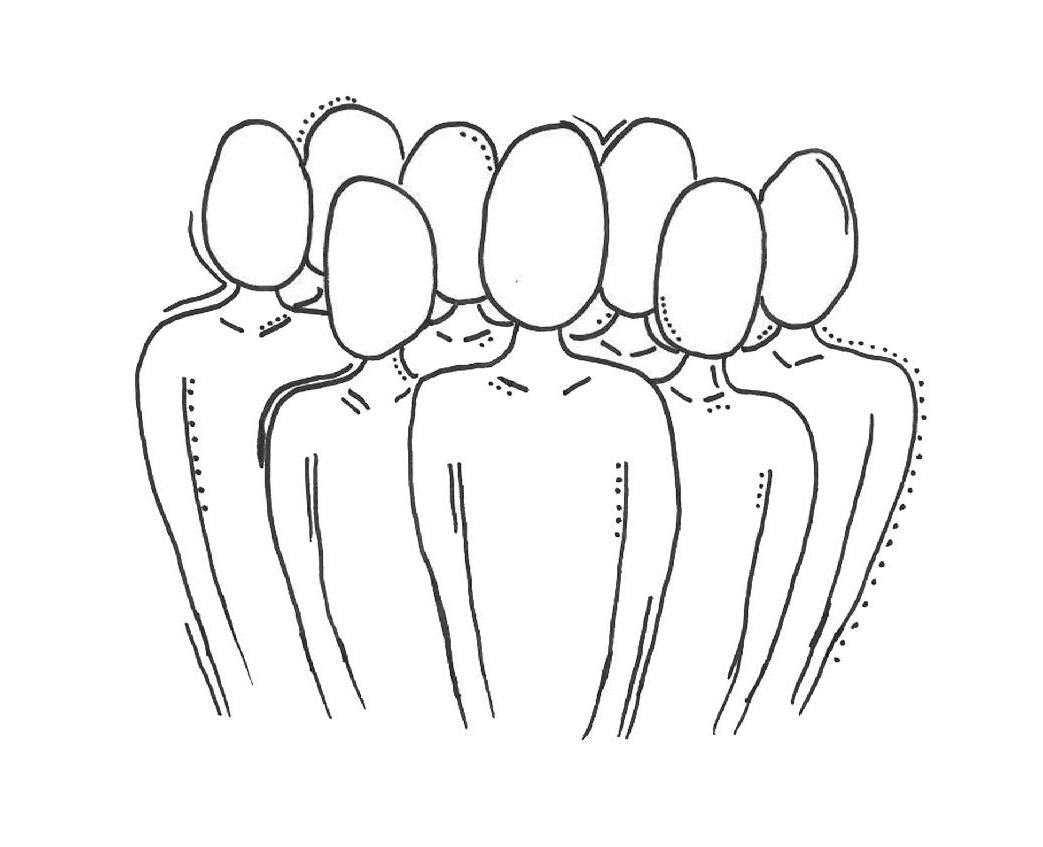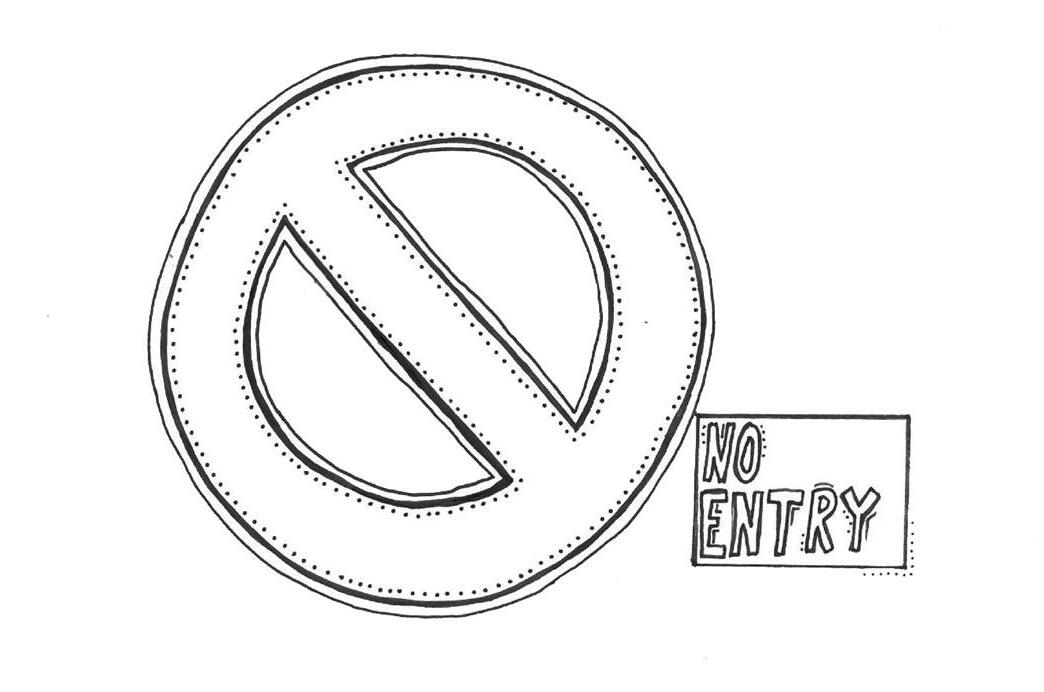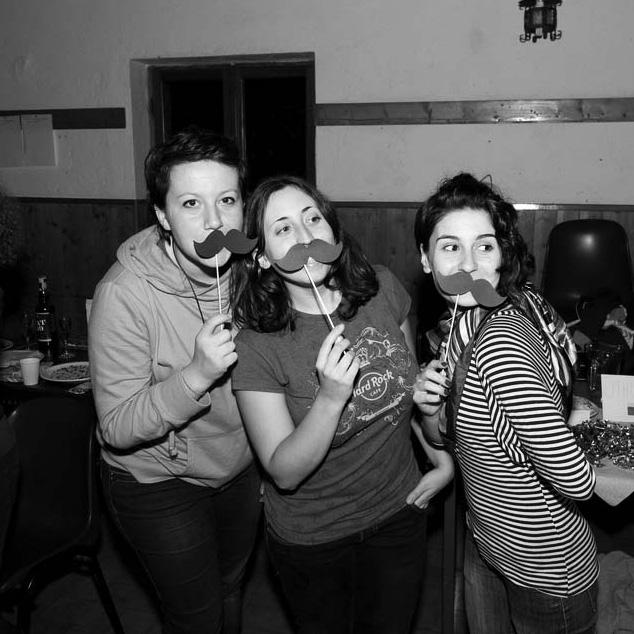
7 minute read
The New Asylum Model in Britain and the rise of Xenophobia
Over the last few months as one of Student Christian Movement (SCM) Britain’s Faith in Action interns, I have been working alongside asylum seekers and refugees to deliver awareness-raising sessions to organisations and services in my local community. We are working to equip others to challenge some of the xenophobic attitudes that have influenced Britain’s treatment of those fleeing their home countries to seek asylum in recent years.
The United Nations 1951 Refugee Convention defines a refugee as any person whose life or freedom is under serious threat due to ‘race, religion, nationality, membership of a particular social group or political opinion’.1 For those who have been forced to flee their homeland due to persecution, war or violence, the convention grants the right to protection in any of the 148 countries that have signed up to it, including Britain. The convention, originally established to protect European refugees after World War II, was extended worldwide in a 1967 Protocol and protects refugees from being forcibly returned to territory where their life or freedom will be under threat. For many years Britain has had a good reputation for providing protection to those fleeing torture and violence, but sadly this tradition is being threatened by the introduction of the New Asylum Model (NAM) in 2007.
Advertisement
1 www.unhcr.org.uk/about-us/the-uk-and-asylum.html
Asylum seekers do not have the right to work and are reliant on a small amount of government support whilst their case is being heard, but within 21 days of receiving a negative decision this support is withdrawn.
The main purpose of introducing the NAM was to fast track asylum applications to live in the UK due to the enormous backlog of unresolved cases and a general call to tighten immigration laws. The NAM’s aim to have asylum applications processed within six months is to be celebrated, yet unfortunately this push for more efficiency is costing many, many asylum seekers dearly. Asylum seekers arrive in the UK, often after very long and difficult journeys, and are required to almost
Last year there were over 11,000 refused asylum seekers who found themselves in this position and had to decide whether to return home, or to stay on in the UK to submit fresh evidence for a new appeal, in the hope of receiving a positive decision on their case.2 The forced destitution of failed asylum seekers is intended to encourage them to return home. However, each year thousands choose to immediately give a full account of their situation to the government. With little time for recuperation, many struggle to feel safe enough to give full details of certain traumatic experiences, like rape and torture. Language and translation barriers can also make it difficult to obtain an accurate understanding of the asylum seekers’ situation, which can be detrimental to their case, especially as they are not guaranteed any legal aid in the interview. Language and translation barriers can also make it difficult to obtain an accurate understanding of the asylum seekers’ situation. This can be detrimental to their case, especially as they are not guaranteed any legal aid in the interview. As a result, many legitimate asylum claims are failed on the basis that the information given is not consistent. Asylum seekers do not have the right to work and are reliant on a small amount of government support whilst their case is being heard, but within 21 days of receiving a negative decision this support is withdrawn. Failed asylum seekers will find themselves destitute unless they choose to voluntarily return home with government assistance. remain in the country simply because it is too dangerous for them to do so. In contrast to the quick initial decision on their case, failed asylum seekers will wait many years (up to fifteen) after submitting fresh evidence, to receive a new verdict on their claim. According to a recent report by Britain’s chief inspector of immigration, John Vine, there was at one point 100,000 items of unopened post sent to the UK Border Agency who handle the asylum claims!3 During this time of waiting for the Border Agency to respond, asylum seekers have to find a means

2 http://www.homeoffice.gov.uk/publications/science-research-statistics/ research-statistics/immigration-asylum-research/immigration-brief-q4-2011/ asylum
3 The Guardian, Friday 23rd November to survive, often by living with a friend or working on the illegal market where they are vulnerable to exploitation. At any point they may experience dawn raids, detention in prison- like conditions for indefinite periods of time and forced deportation to their country of origin.

According to a recent report by Britain’s chief inspector of immigration, John Vine, there was at one point 100,000 items of unopened post sent to the UK Border Agency who handle the asylum claim.
It is deeply distressing to hear the stories of those who have fled trauma in their home countries, only to arrive in Britain to have to continue to fight for their lives. One story that particularly shocked me when I started my internship was of a man who volunteers with me who is originally from Afghanistan. He worked for the British Embassy there for nine years helping to protect Britons passing through the country, but he eventually fled to England with his family when the Taliban made two attempts on his life because of his work for the British. Despite this, he had his first claim rejected, and it then took over three years for this man and his family to finally receive their right to remain in the UK.
I am writing about my experience of the asylum process in Britain, but I am also aware that in other countries, life as an asylum seeker is even harder. Despite this harsh reality of life as an asylum seeker in Europe, however, media headlines about asylum seekers that feature in some of Britain’s most popular tabloid newspapers reflect hostility, rather than welcome, and suspicion rather than empathy; ‘Kick out this scum’,4 ‘halt this crooked tide’5 and, ‘asylum seekers are lured into this country by its enormous benefits’6. Over the last few months as a Faith in Action intern, it has been tempting to become bitter and angry when I have encountered examples of this kind of hostility to the foreign Other, whilst working alongside the people who it directly affects. However, I am beginning to recognise that behind the media headlines that label outsiders as killers, cheats and benefit fraudsters, is a fear and vulnerability which is expressed in this language of lashing out.
Marshall Rosenberg, creator of a methodology of conflict resolution called Nonviolent Communication, writes about this kind of labelling of others as one of the most powerful barriers to peaceful and compassionate communication. Rosenberg argues that whilst human beings are naturally compassionate, conflict arises when we are vulnerable and have unmet needs, which can sometimes be unhelpfully expressed in the negative labelling and condemnation of others;
‘At the root of much, if not all, violence- whether verbal, psychological, or physical, whether among family members, tribes, or nations- is a kind of thinking that attributes the cause of conflict to wrongness in one’s adversities, and a corresponding inability to think of oneself or others in terms of vulnerability – that is, what one might be feeling, fearing, yearning for, missing’.7
Asylum seekers and refugees who travel to Europe participate in their own kind of exodus, yet for many their journey ends not in liberation, but in more struggle.
Behind the negative labelling of asylum seekers and refugees, one can often hear a fear for Europe’s own socioeconomic security. There is a deep sense of vulnerability, projected onto the outsider, behind objections such as ‘they’re taking all our jobs’ and ‘they’re stealing our tax payer’s money’. It can be difficult to hear the needs of another when many are themselves struggling for jobs and have an unmet need for the social and economic security we all desire for ourselves and our families.
This coming March, SCM will be marking the 40th anniversary of the SCM’s 1973 Seeds of Liberation Conference, by once again inviting students from all over the world to come together and explore what justice, particularly in the context of liberation theology, means for our world today. The story of the Israelite’s release from slavery in Egypt has been one of the key Biblical texts for the Liberation Theology movement, as a story of God delivering an oppressed nation into freedom in a new land. Interestingly, behind Pharaoh’s oppression of the Israelites and his labelling of them as outsiders, lay a fear also; 'Look, the Israelite people are more numerous and powerful than we. Come, let us deal shrewdly with them, or they will increase and, in the event of war, join our enemies and fight against us and escape from the land’ (Exodus 1:8).
Asylum seekers and refugees who travel to Europe participate in their own kind of exodus, yet for many their journey ends not in liberation, but in more struggle. What might liberation look like in this context today? For those seeking sanctuary, this may mean liberation from the years of living in limbo, waiting for a decision on their case, and from their experiences of suspicion of the outsider as reflected in the media. For those of us who already have our residence in Europe, liberation might mean a release from the fear that asylum seekers are here to take advantage of the system. If we know why the majority have come, what they have suffered, and how much they have had to give up to come here, then maybe this would elicit a more compassionate response to their pain. �
Jo Musker is an undergraduate student of English Literature and Biblical Studies at the University of Sheffield, and one of SCM Britain's Faith in Action interns. She has been working with asylum seekers and refugees since last September, raising awareness of the difficulties of life as an asylum seeker in Britain. Jo has a particular interest in international development issues, and has spent time volunteering with Church projects in Peru and South Africa.
Testing of genuine Hungarian mustaches.

Hattie Hodgson







